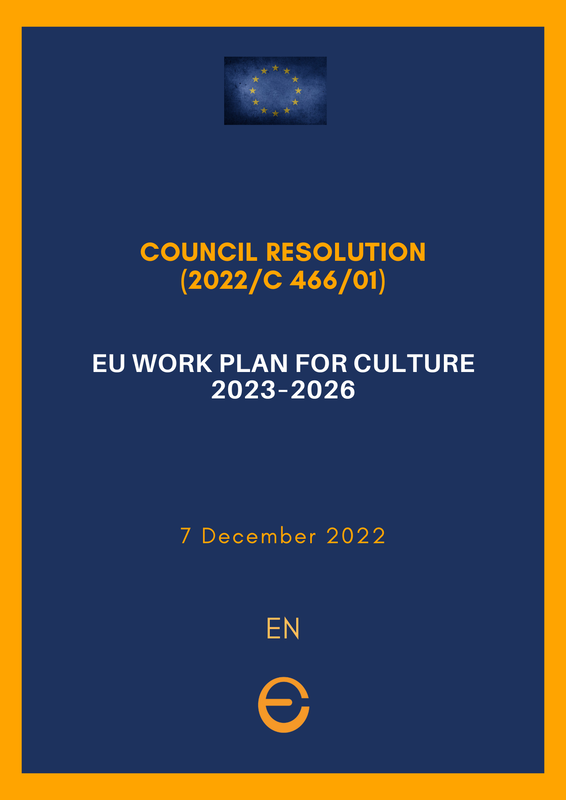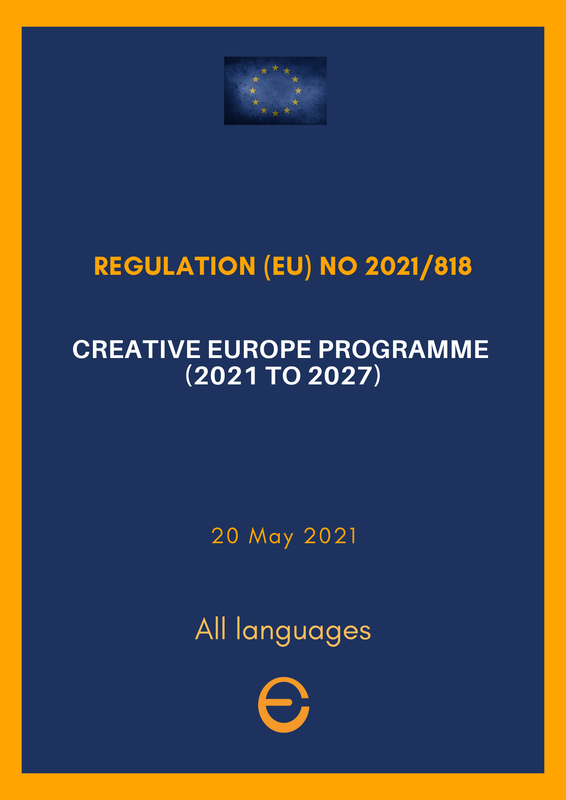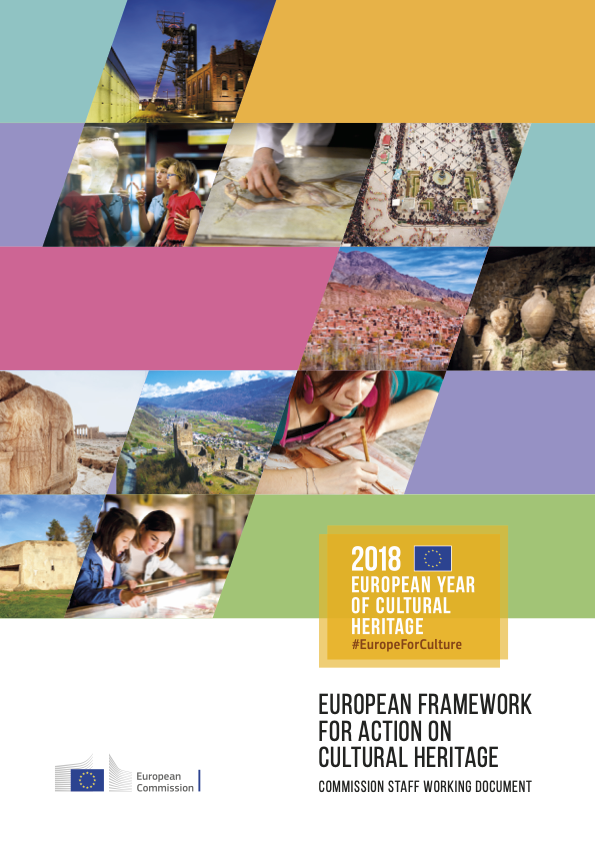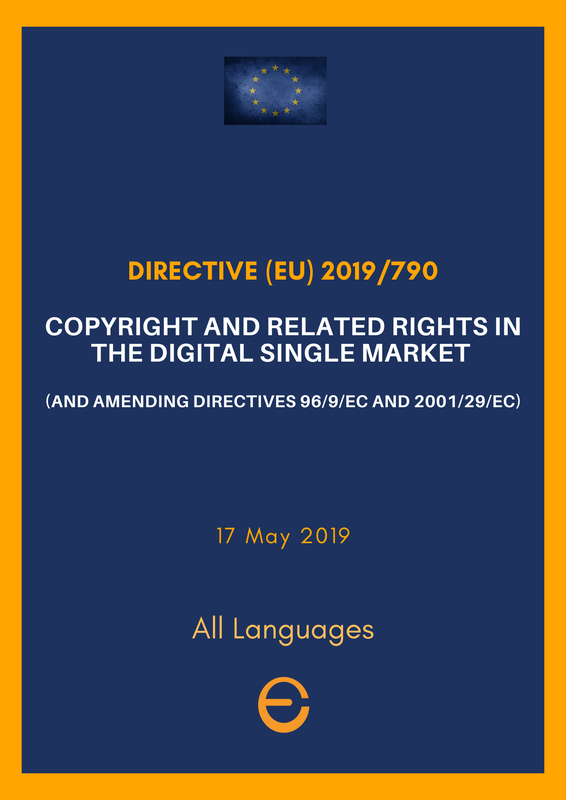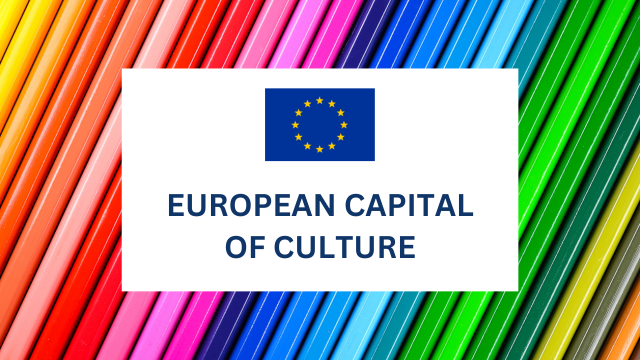|
Brussels, |
|
EU Competencies
The EU, through its Treaties, legislation and with the support of EU departments, plays a significant role in supporting and enhancing culture within its member states. EU develops Multiannual programmes and support the actions of Member States, through a Dialogue with cultural and creative sectors and the Open Method of Cooperation (OMC), a practical and structured way to bring together representatives from EU Member States to encourage the exchange of good practices regarding the design of policies and funding schemes.
EU Action in Culture:
Assisting the Cultural and Creative Sectors:
Commission Leadership and Departments:
This resume highlights the EU's multifaceted approach to cultural policy, balancing national discretion with coordinated European action.
EU Action in Culture:
- Legal Basis: The Creative Europe programme, dedicated to supporting culture, offers an open-ended definition of cultural and creative sectors.
- Treaty References:
- The Treaty on European Union (TEU) draws inspiration from Europe's cultural, religious, and humanist heritage.
- Article 3 of the TEU emphasizes respecting and safeguarding Europe’s cultural and linguistic diversity.
- Article 6 of the Treaty on the Functioning of the European Union (TFEU) grants the EU competences to support, coordinate, or supplement Member States' cultural actions.
Assisting the Cultural and Creative Sectors:
- Role of European Commission: Assists Member States in addressing common challenges such as digital technology impacts and changing cultural governance models.
- Strategic Documents and Priorities: Aligns actions with strategic cultural cooperation documents and sets priorities for each Commission term.
- Integration into Wider EU Policies: Ensures culture's social and economic roles are acknowledged in broader EU policymaking.
- Crisis Mitigation: Helps mitigate adverse effects of crises with coordinated EU responses.
Commission Leadership and Departments:
- Commissioner: Iliana Ivanova, responsible for cultural and creative sectors, oversees the implementation of the New European Agenda for Culture and promotes Creative Europe Programme.
- Directorate-General for Education, Youth, Sport and Culture (DG EAC): Manages EU cultural actions and the Creative Europe programme.
- Other Departments:
- Directorate-General for Communications Networks, Content and Technology (DG CONNECT)
- Directorate-General for Internal Market, Industry, Entrepreneurship and SMEs (DG GROW)
- Directorate-General for Research and Innovation (DG RTD)
- Cross-Departmental Integration: Culture-related issues are integrated into various policies and programs managed by other Commission services like employment, local, and regional development.
This resume highlights the EU's multifaceted approach to cultural policy, balancing national discretion with coordinated European action.
EU Strategy
|
The European Union's strategy on culture is focused on integrating cultural considerations into a wide range of policies, emphasizing the significant role of culture in social cohesion, economic development, and international relations.
This strategy is underpinned by a number of key documents and legislative frameworks:
These strategic documents and legislative references collectively form the backbone of the EU's approach to culture, emphasizing its intrinsic value and its role as a driver of economic growth and social cohesion. They also highlight the EU's commitment to preserving cultural heritage, promoting cultural diversity, and integrating culture into external relations and other policy areas. |
EU Action
The European Commission’s defined priorities for 2019-2024 are highly relevant for policy making in the field of culture at EU level and for the key themes of European cultural cooperation. These priorities are part of the overall political strategy of the European Union.
The defined priorities remain highly relevant for policy making in the field of culture at EU level and for the key themes of European cultural cooperation.
The defined priorities remain highly relevant for policy making in the field of culture at EU level and for the key themes of European cultural cooperation.
For the period of 2019-24, the six political priorities of the European Commission are:
New European Agenda for Culture (2018):
Work Plans for Culture:
European Framework for Action on Cultural Heritage (2018):
EU Strategy for International Cultural Relations (2016):
- Six Political Priorities:
- European Green Deal: Climate-neutral continent.
- Europe Fit for the Digital Age: Empowering with new technologies.
- Economy for People: Social fairness and prosperity.
- Stronger Europe Globally: Responsible global leadership.
- Promoting European Way of Life: Equality and opportunity.
- Push for European Democracy: Strengthening democracy.
- Cultural and creative sectors (CCIs) contribute to all these priorities.
New European Agenda for Culture (2018):
- Framework for EU-level Cultural Cooperation: Addresses culture's impact on society, economy, and international relations.
- Three Strategic Areas:
- Social: Fostering cultural diversity, mobility of cultural professionals, and promoting European cultural heritage.
- Economic: Supporting culture-based creativity in education, ecosystems for CCIs, and promoting relevant skills.
- External: Strengthening international cultural relations, intercultural dialogue, and cooperation on cultural heritage.
- Strong Cooperation: With Member States, civil society, and international partners.
Work Plans for Culture:
- Defined by Member States: Multi-annual plans with cultural policy priorities at the EU level.
- Current Work Plan (2023-2026): Focuses on four priorities:
- Empowering cultural and creative sectors.
- Enhancing cultural participation and society role.
- Unleashing culture's power for the planet.
- Strengthening culture in EU external relations.
- 21 Defined Actions: With clear working methods and target outputs.
European Framework for Action on Cultural Heritage (2018):
- First-Ever Framework: Scales up the success of the European Year of Cultural Heritage 2018 for lasting impact.
EU Strategy for International Cultural Relations (2016):
- Joint Communication: Focuses on cultural cooperation at the center of EU's diplomatic relations globally.
EU Cooperation with Member States and Civil Society
Cooperation on cultural policy between the European Commission and the 27 European Union (EU) Member States occurs in the Council of the EU’s related preparatory bodies – the Education, Youth, Culture and Sport Council – and its Cultural Affairs Committee.
This cooperation also requires dialogue with civil society organisations, cultural stakeholders and other actors, such as cities and regions or international organisations, including the Council of Europe, the United Nations Educational, Scientific and Cultural Organization (UNESCO) and the Organisation for Economic Co-operation and Development (OECD).
This cooperation also requires dialogue with civil society organisations, cultural stakeholders and other actors, such as cities and regions or international organisations, including the Council of Europe, the United Nations Educational, Scientific and Cultural Organization (UNESCO) and the Organisation for Economic Co-operation and Development (OECD).
Cooperation Mechanisms:
Cooperation with Member States:
Recent Key Themes Addressed:
Dialogue with Cultural and Creative Sectors:
Current and past themes addressed by the Voices of Culture dialogue on their website:
- European Commission and Member States: Collaborate within the Council of the EU, particularly through the Education, Youth, Culture and Sport Council and its Cultural Affairs Committee.
- Accountability: The Commission is accountable to the European Parliament and its Committee on Culture and Education.
- Inclusive Dialogue: Involves civil society, cultural stakeholders, cities, regions, and international organizations like UNESCO and OECD.
Cooperation with Member States:
- Open Method of Cooperation (OMC): Facilitates the exchange of good practices and policy designs among EU Member States. Experts appointed by Member States produce policy recommendations, manuals, and toolkits.
- Topics Addressed: Include artist working conditions, cultural sustainability, multilingualism, audio-visual co-productions, architecture, and more.
- OMC Expert Groups: Have been active since 2008, with recent topics ranging from sustainable development to high-quality architecture.
Recent Key Themes Addressed:
- Status and working conditions of artists (2023)
- Culture as a driver for sustainable development (2022)
- Strengthening Cultural heritage resilience for climate change (2022)
- Multilingualism and translation (2022)
- Audio-visual co-productions (2022)
- High-quality architecture and living environment (2021)
Dialogue with Cultural and Creative Sectors:
- New European Agenda for Culture: Emphasizes the importance of dialogue with cultural and creative sectors for successful policy implementation.
- Voices of Culture: A structured dialogue framework since 2015, run by the Goethe-Institut, facilitating discussions between EU civil society stakeholders and the Commission on various cultural topics.
Current and past themes addressed by the Voices of Culture dialogue on their website:
- Culture and Creative Sectors and Industries driving Green Transition and facing the Energy Crisis (2023)
- International Cultural Relations (2022)
- (Re)-Engaging digital audiences in the cultural sectors (2022)
- Status and working conditions for artists, cultural and creative professionals (2021)
- Culture and the Sustainable Development Goals (2021)
- Gender balance in the cultural and creative sectors (2020)
- The role of culture in non-urban areas of the European Union (2020)
- Audience development via digital means (2018)
- Social Inclusion: partnering with other sectors (2018)
- Skills, Training and Knowledge Transfer: traditional and emerging heritage (2017)
- Intercultural dialogue culture in shared public spaces (2016)
- The role of culture in promoting inclusion in the context of migration (2016)
- Developing the entrepreneurial and innovation potential of the cultural and creative sectors (2016)
- Participatory governance of cultural heritage (2015)
Source: European Union, http://www.europa.eu/, 1998-2024
|
Brussels - Milano - Nice - Tokyo
|
eEuropa Belgium
Avenue Louise, 367 1050 Brussels BELGIUM Bld. Franck Pilatte, 19 bis
06300 Nice FRANCE YONO HOUSE 9-1 KAMIOCHIAI, SAITAMA-SHI, SAITAMA-KEN 〒 338-0001 JAPAN Via S. Veniero 6 20148 Milano ITALY |
All rights reserved - © Copyright eEuropa Belgium 2020-2024


